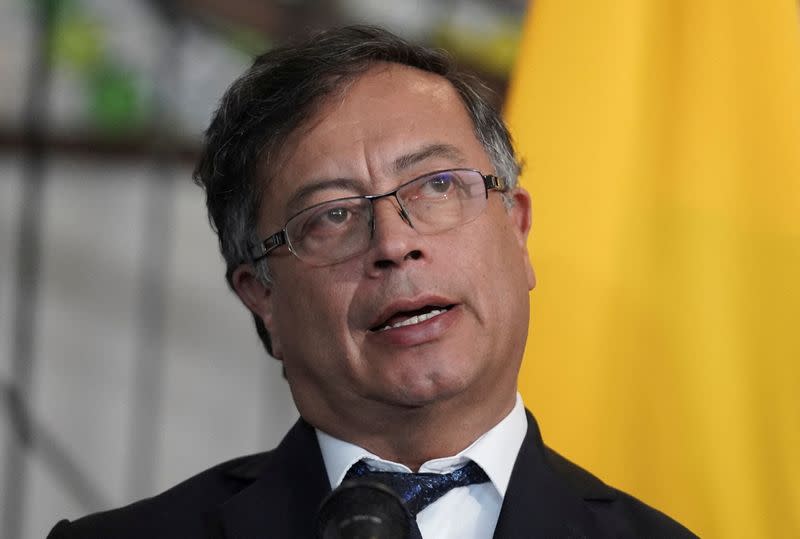BOGOTA, (Reuters) – Colombia’s government agreed on Monday to modify a tax reform proposal under debate in congress and continue to allow oil and mining companies to deduct royalty payments from their taxes in the wake of a wave of industry criticism.
The government has agreed to back continued royalty deductions in exchange for raising income taxes on extractive industries by 5% and increasing an export tax to 20% for oil and coal sold above certain threshold prices, Finance Minister Jose Antonio Ocampo told journalists.
Colombia’s new leftist President Gustavo Petro has said he wants to raise 25 trillion pesos (some $5.6 billion) in tax revenue in 2023, before eventually adding about $11.5 billion annually for social programs to government coffers.
But clauses which would have prevented energy companies from offsetting taxes with royalty payments came under heavy criticism from producers who said they may make investment inviable.
“The agreement will trade non-deductibility (of royalties) for 5 extra points on income tax. It’s a surcharge, like for the financial industry,” Finance Minister Ocampo said.
The threshold for the export tax on oil will now be $71 per barrel, compared to a previous $48 per barrel.
Coal exports will see the duty levied when prices are above a 20-year average, though Ocampo did not give an exact figure.
Gold exports will not be included in the program as initially planned.
The reform may not raise 25 trillion pesos in additional income next year, Ocampo said, though he did not give more details.
Meanwhile a proposal to raise taxes on gasoline will be scrapped, and more changes to the bill are expected next week.
Thousands marched earlier on Monday to urge changes to the reform, which would also raise taxes on those earning more than $2,259 per month, about 10 times the minimum wage, and eliminate exemptions.

